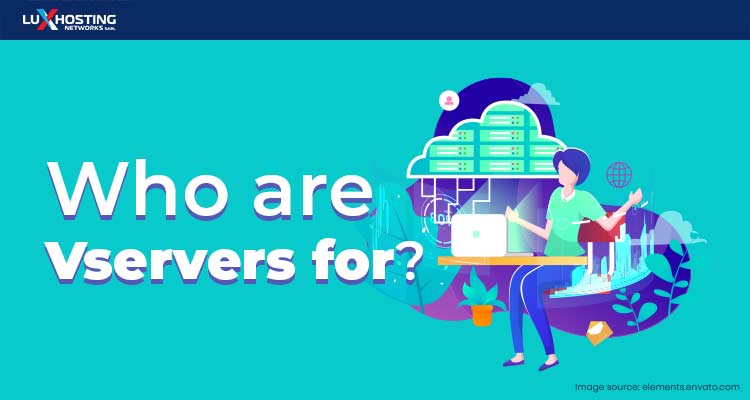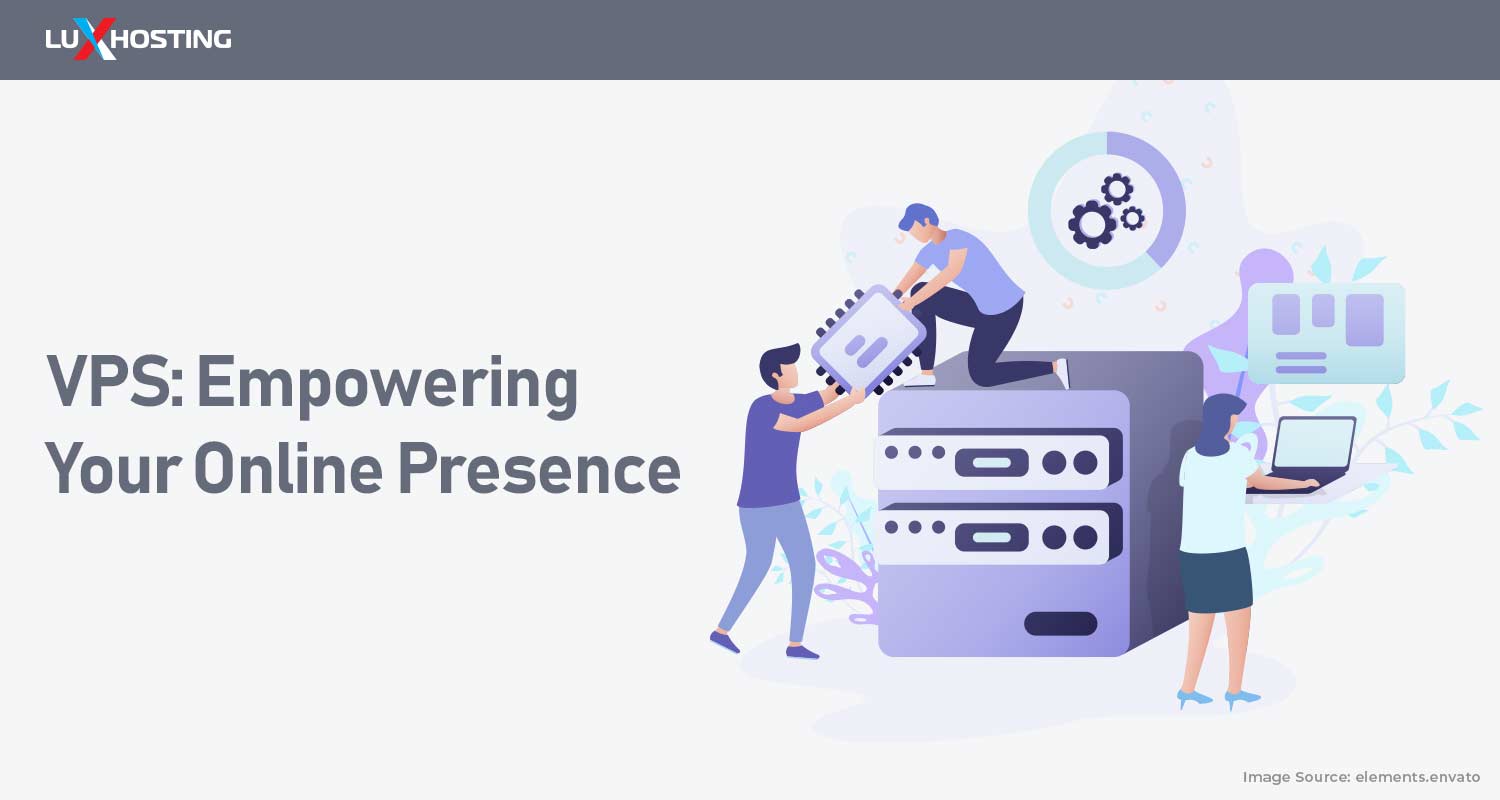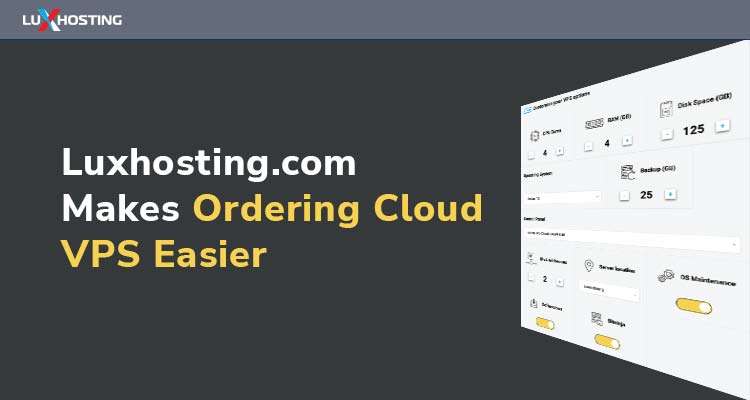So, you’re an individual or a small and medium sized business (SMB) seeking to set up your website. You already know you’ll need a host server to host your website. So, now you have started looking into your options. You’ve come across a range of different server options — shared, dedicated, cloud, vservers etc. Now you've fixed your attention on vserver hosting. That’s why you're reading this, right? Well, we’ll be delving into a bit about vservers in order to help you make that decision on whether it’s right for you.
What is a Vserver ?
[caption id="attachment_9882" align="aligncenter" width="600"] Image source: elements.envato.com[/caption] A vserver (also called Virtual Private Servers or VPS), is a storage location which hosts websites. The website is usually built and managed on these servers and then people access your website on them through the internet. A good way of understanding what a virtual server is to start by looking at the dichotomy of shared server versus dedicated server. With shared servers, a web host will have a single physical server that hosts the websites of several different clients. These websites not only share the physical server, but also all its resources — such as CPU, RAM, disk space, and bandwidth. This can put a hamper on the performance of these websites as they compete for resources from the same pool. Also, a vulnerability in any one website can quickly put the rest at risk. For these reasons, shared server options are often on the cheaper end of the spectrum.Dedicated servers, on the other hand, are just as they sound: dedicated. The host offers an entire physical server to a client who can then choose to manage it in any way they please. It has none of the drawbacks of shared servers. A virtual server is somewhat a strange in-between for the two (shared and dedicated). With a vserver, virtualisation technology partitions one physical server into multiple virtual private servers that function as dedicated virtual machines. The partition is done in a way that the virtual machines function completely independent of each other and resources are allocated to each machine, rather than shared from a pool.
Image source: elements.envato.com[/caption] A vserver (also called Virtual Private Servers or VPS), is a storage location which hosts websites. The website is usually built and managed on these servers and then people access your website on them through the internet. A good way of understanding what a virtual server is to start by looking at the dichotomy of shared server versus dedicated server. With shared servers, a web host will have a single physical server that hosts the websites of several different clients. These websites not only share the physical server, but also all its resources — such as CPU, RAM, disk space, and bandwidth. This can put a hamper on the performance of these websites as they compete for resources from the same pool. Also, a vulnerability in any one website can quickly put the rest at risk. For these reasons, shared server options are often on the cheaper end of the spectrum.Dedicated servers, on the other hand, are just as they sound: dedicated. The host offers an entire physical server to a client who can then choose to manage it in any way they please. It has none of the drawbacks of shared servers. A virtual server is somewhat a strange in-between for the two (shared and dedicated). With a vserver, virtualisation technology partitions one physical server into multiple virtual private servers that function as dedicated virtual machines. The partition is done in a way that the virtual machines function completely independent of each other and resources are allocated to each machine, rather than shared from a pool.
Distinct Charasteristics of Vservers
The nature of virtual servers gives it unique characteristics and advantages amongst other host server options. They tend to be adequate for a variety of websites ranging from individual/personal to SMBs to even large-scale businesses. So that might mean you. Here's a further breakdown of the characteristics of vservers and how that might make them just right for you or your business.
Here's a further breakdown of the characteristics of vservers and how that might make them just right for you or your business.
1. Vservers are Scalabile
One of the advantages of using virtual machines is that they are scalable. VPS host services make it easy for you to add a certain resource that you might need a lot more of than normal. You can also downgrade resources if there’s surplus. Moreover, you don’t have to change your entire plan to do it. What this means is that you can easily upgrade and downgrade things like bandwidth and storage as needed. If you are starting a website — like, say, an ecommerce blog — which you expect might see significant growth in the near future, using a vserver might be best for you to manage increased traffic and need for resources. You don’t waste money on resources you won't use and they’re always available to you in the event that you need them. Furthermore, there are more resources split between fewer users compared to shared server hosting. As a result, the threshold for scalability offered with vservers tends to be pretty large. When it comes to shared and dedicated servers, upgrades and downgrades would only be in the form of changing entire hosting plans. With dedicated servers, the only option would be to completely migrate to a new server.
2. Vservers are High Performing
With a vserver, resources are allocated. Clients do not compete for resources in a pool as they do with shared hosting. Again, host services using virtual servers typically have far less virtual machines in a single physical server than websites on shared hosting servers. This means that virtual hosting offers top notch performance at a competitive price for websites which need it.
3. Security is over the top
Security is a major concern for all websites, but maybe some more than others. Virtual servers offer security equivalent to dedicated servers. The way vservers are partitioned not only gives them the functionality of physical servers, but also secures the veserver in a way that vulnerabilities and malicious attacks on one vserver will have no impact on the others. If your website or business requires high levels of security then virtual servers are right for you.
4. Vservers Cost won't let you break the bank
Virtual servers exist as a way of saving on the cost of physical hardware. Virtual servers function like dedicated physical servers, but at a lower cost. If you require the functionality of a dedicated server but dedicated physical servers are too far out of your budget, then a virtual server is the best alternative. You may need a vserver is the following characteristics are advantageous to you.
5. Dedicated resources for fast and seamless hosting
 Virtual server hosting also offers the flexibility and customizability of dedicated hosting at a lower cost. Since virtual servers function as dedicated servers, they don’t typically come with the restrictions of a shared environment — such as the kind of operating system, content management software (CMS) and security measures that can be used. For security and performance reasons, shared services don’t have this range of flexibility.
Virtual server hosting also offers the flexibility and customizability of dedicated hosting at a lower cost. Since virtual servers function as dedicated servers, they don’t typically come with the restrictions of a shared environment — such as the kind of operating system, content management software (CMS) and security measures that can be used. For security and performance reasons, shared services don’t have this range of flexibility.
Conclusion
If you’re an individual or business who needs a hosting service that offers robust security, scalability, flexibility, and high performance for your website, then a virtual server is probably just right for you. Luxhosting VPS service is ideal for you and come without the premium prices of dedicated physical servers. Get a free conslutation with our in-house Vserver expert and go here for free VPS resources.



